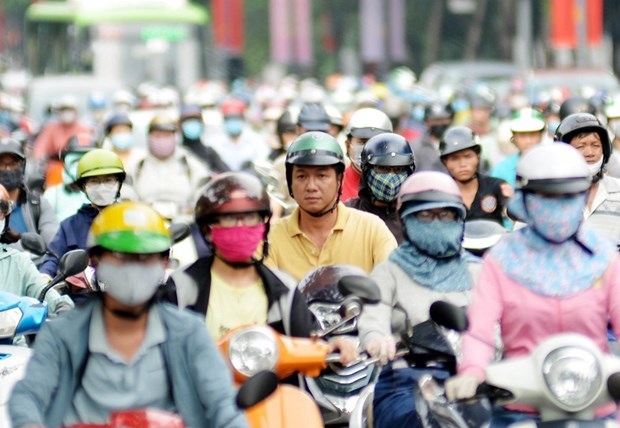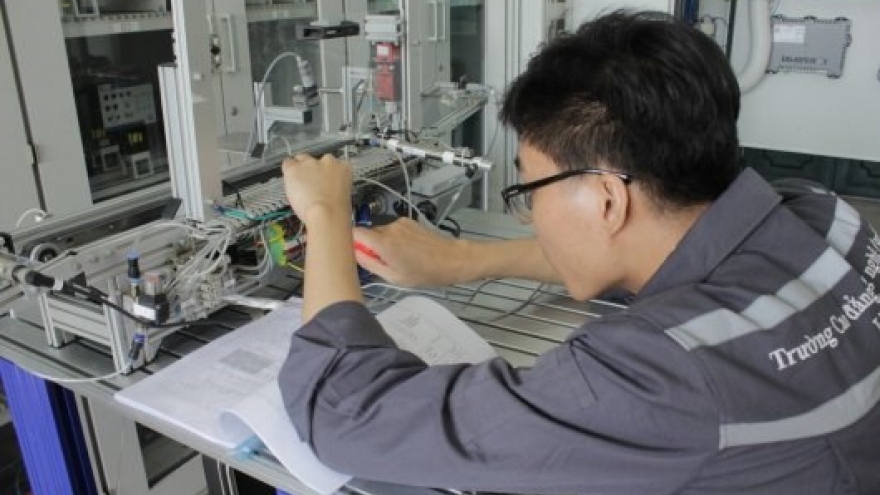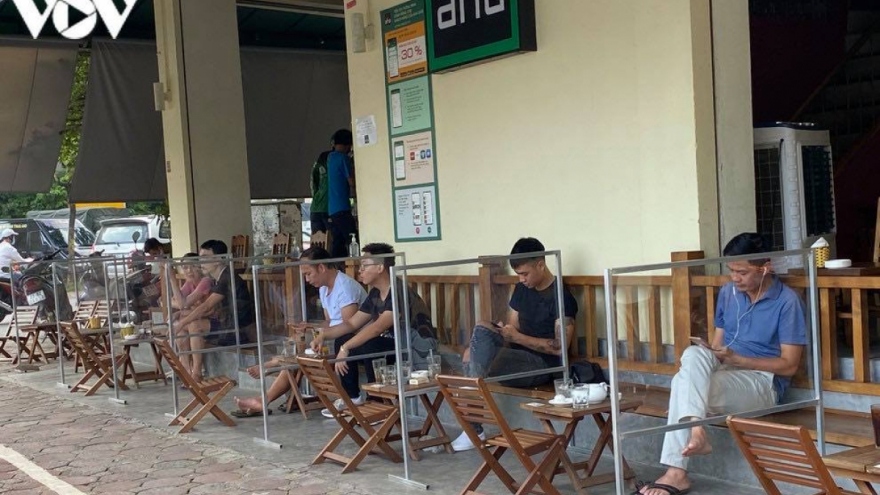Citizens’ laxation poses big risk to pandemic prevention work
Citizens’ laxation of COVID-19 preventive measures is posing a big risk to the pandemic prevention and control in the country.

Recently, the Trang An tourism complex in the northern province of Ninh Binh is rather crowded. However, few among the tourists wore a face mask, even though notices about pandemic prevention measures are posted everywhere and hand sanitizer is readily available. Many staff members in the complex, including guards, ticket sellers or waiters and waitresses at local restaurants do not wear face masks.
In fact, adherence to pandemic prevention measures in many localities has been loosened. Even in big cities with dense population, the abidance by epidemic prevention measures has become lax. In office buildings or apartment high-rises, it is easy to see people wearing no face masks in elevators.
Not only people but also relevant forces seem more relaxed in enforcing preventive measures. According to latest statistics of Ho Chi Minh City, forces gave warnings to 9,300 people and fined 4,064 others for not wearing face masks in public places during the period from August 5 to October 10. However, the real figure of violators must be much higher as it is easy to meet people wearing no face masks in public places.
Meanwhile, the situation of COVID-19 pandemic in the world shows no sign of abating. As of October 23 morning, the worldometers.info reported the total number of COVID-19 cases in the world has surpassed 41.9 million, with over 1.142 million deaths. The pandemic has spread to 217 countries and territories.
For every 100 new cases in the world, 34 are in Europe. Many European countries have begun to re-impose restriction measures to curb the return of the pandemic. The World Health Organisation is concerned that the crisis is worsening, and predicts that more deaths will occur in Europe in the time ahead.
Vietnam has entered the 51st day without any new infections in the community on October 23, with 1,148 cases of COVID-19 recorded as of 6am on October 23.
However, acting Health Minister Nguyen Thanh Long warned that the risk of pandemic entering the country remains high, especially when more flights are bringing Vietnamese citizens and foreign experts home, including international commercial flights. In addition, the weather in winter and spring is favourable for infectious diseases to spread. It is worrying that recent inspections of the Health Ministry revealed that some localities and units are not following regulations and guidance in epidemic prevention. The monitoring of people quarantined at home is not strict enough.
Vietnam has been described as a model in COVID-19 prevention and control for its spirit of “fighting the pandemic like fighting an enemy,” and the strategy of mobilising the entire political system in quickly stamping out any outbreak, which allows the country to successfully curb the epidemic despite limited resources. “Know your enemy, and you can fight a hundred battles without loss,” was one of the classic military tactics by ancient Chinese military strategist Sun Tzu, which can be applied not only in war but also in many social and economic fields. On the contrary, overconfidence and under-estimating the enemy are the cause of all defeat.
Deputy Prime Minister Vu Duc Dam has stressed that in the fight against the COVID-19 pandemic, Vietnam has only won some battles, and more fighting remains ahead. Therefore, each person must not loosen vigilance and must adapt to the “new normal” situation by observing the 5-K message: Khau trang (facemask) – Khu khuan (disinfection) – Khoang cach (Keeping distance) – Khong tu tap (no gatherings) – Khaibao y te (medical declaration).


